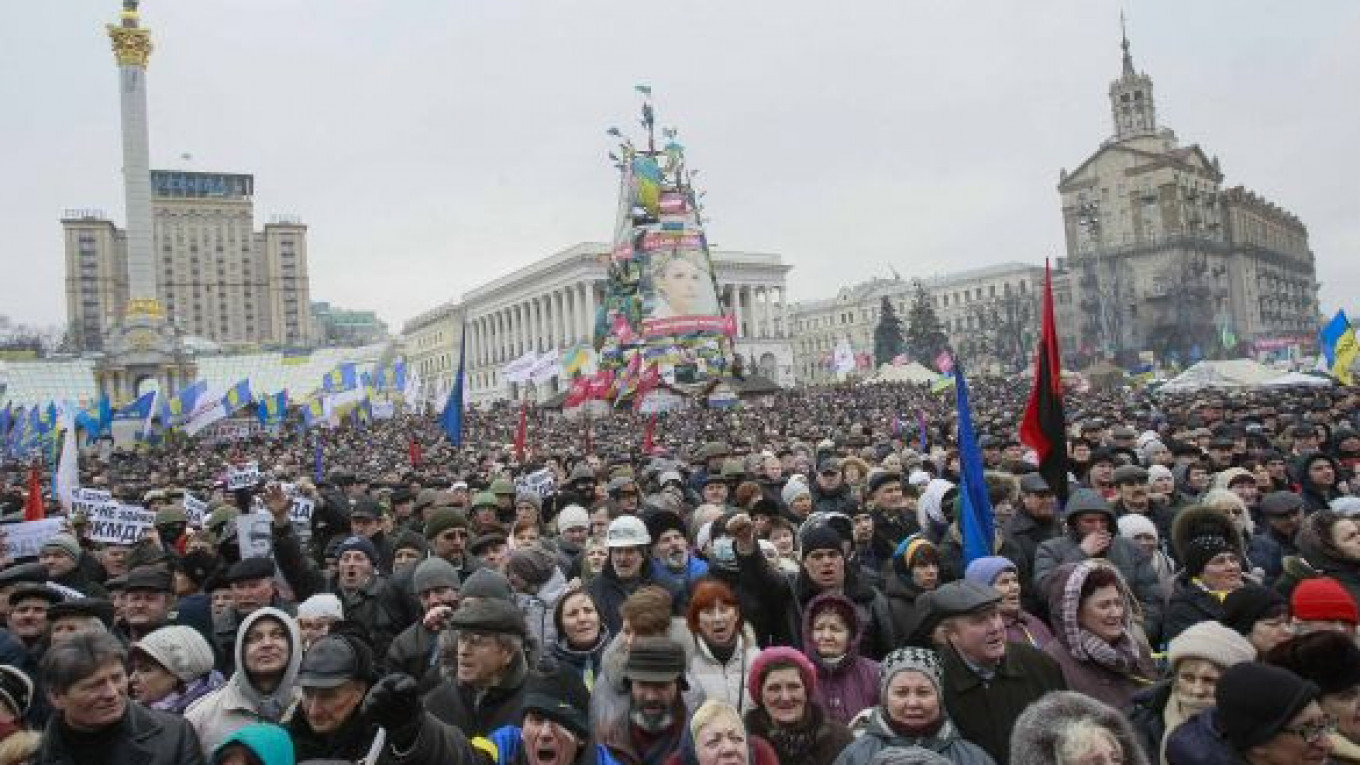Anti-government demonstrators in Ukraine's capital ended their nearly three-month occupation of Kiev City Hall on Sunday as promised in exchange for the release of all jailed protesters. But tensions remained high as hundreds stayed outside the building, vowing to retake it if the government fails to drop all criminal charges against the protesters.
Prospects for an easing of the standoff between the opposition and President Viktor Yanukovych dimmed further when a top opposition leader, Arseny Yatsenyuk, again turned down an offer to become prime minister in a coalition government.
Yanukovych is expected to nominate a new prime minister in the near future, and Western officials have been advocating for a coalition government drawn from the ruling party and the opposition. But Yatsenyuk said he would not agree to take the post, which Yanukovych offered to him last month, unless the president makes further concessions, including a constitutional reform that reduces presidential powers.
"I cannot be bought with posts, Mr. President. Go ahead and buy your henchmen," Yatsenyuk told the tens of thousands of protesters who turned out for the traditional Sunday demonstration.
Earlier Sunday, protesters handed control of City Hall to international mediators from the Organization for Security and Cooperation in Europe, who were then supposed to hand it back to city authorities. The compromise was reached after the last of 234 jailed protesters were released in the past week under an amnesty that also called for opposition activists to vacate government buildings in Kiev and elsewhere.
But hundreds of angry protesters, clad in protective gear, amassed outside the building, saying they would seize it again if charges were not dropped.
Demonstrators had seized Kiev City Hall on Dec. 1, about a week after mass street protests broke out in response to Yanukovych's decision to abandon a long-anticipated political and economic treaty with the European Union. The president, whose support base is in the Russian-speaking east and south of the country, turned to Russia instead for loans to keep Ukraine's economy afloat.
A Message from The Moscow Times:
Dear readers,
We are facing unprecedented challenges. Russia's Prosecutor General's Office has designated The Moscow Times as an "undesirable" organization, criminalizing our work and putting our staff at risk of prosecution. This follows our earlier unjust labeling as a "foreign agent."
These actions are direct attempts to silence independent journalism in Russia. The authorities claim our work "discredits the decisions of the Russian leadership." We see things differently: we strive to provide accurate, unbiased reporting on Russia.
We, the journalists of The Moscow Times, refuse to be silenced. But to continue our work, we need your help.
Your support, no matter how small, makes a world of difference. If you can, please support us monthly starting from just $2. It's quick to set up, and every contribution makes a significant impact.
By supporting The Moscow Times, you're defending open, independent journalism in the face of repression. Thank you for standing with us.
Remind me later.






